Doing something about it
confessions of a bad Taoist
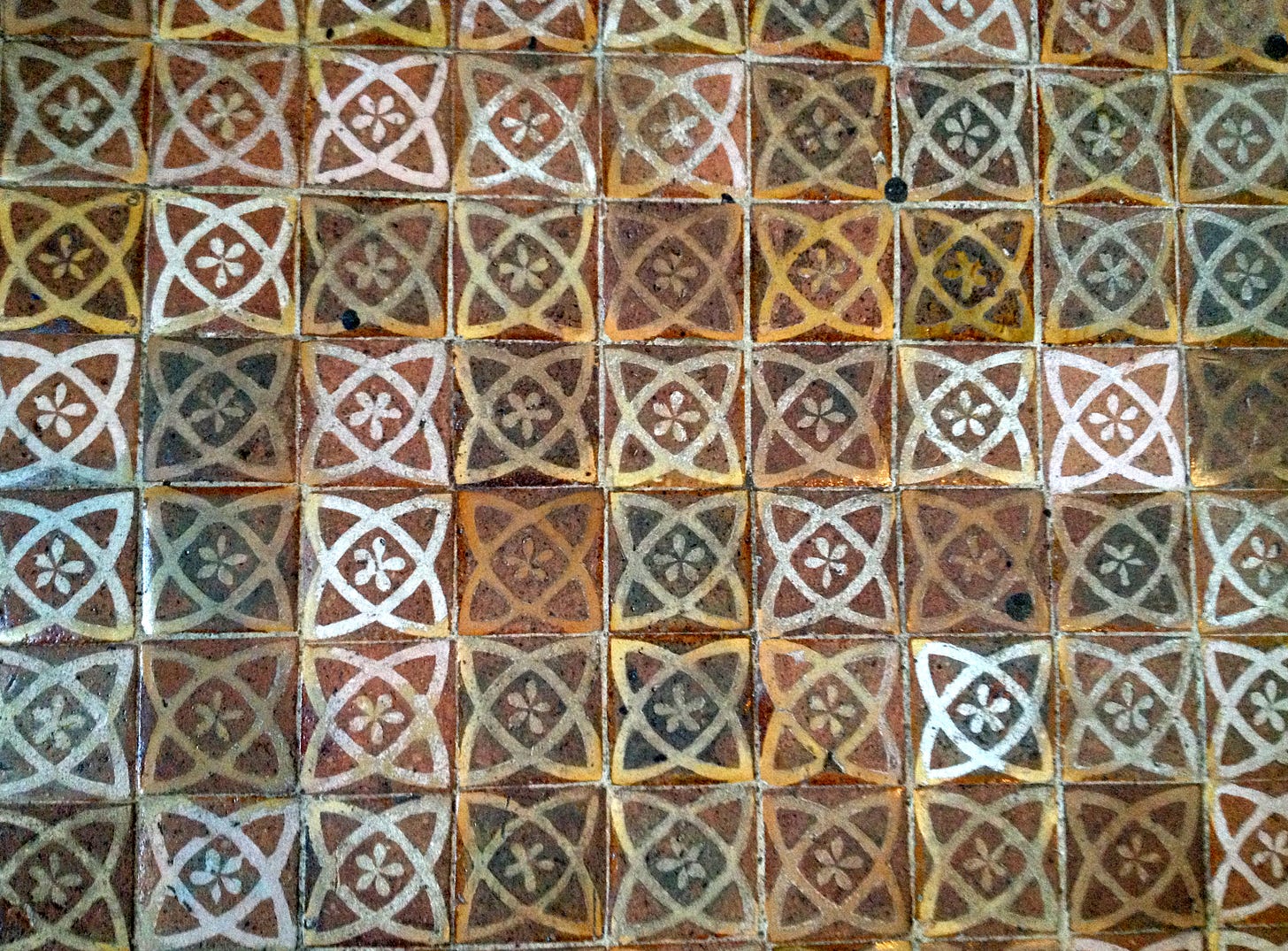
First, an announcement: from today the cost of a paid subscription to Uncivil Savant will be lowered by $1 per month and the Founding Member price is halved to $100. Times are hard for many people, prices for everything are through the roof in the UK, perhaps where you are too. Solidarity with you if you are having a hard time right now, especially while the super-rich swan about on their mega-yachts, annoying the orcas. (No offence intended to swans, they can’t help being beautiful, aloof and afloat…)
It takes too much of my energy dealing with random anonymous comments from people who are not regular readers, (nor are fellow artists or writers who post their own work publicly). On both my Instagram and Substack, I give away a substantial amount of art, technique, energy and information for free. Both these online portals are vital aspects of my professional life (in visual arts, teaching and writing, and to a currently lesser extent, T’ai Chi). A fertile ongoing email exchange with
and recent posts about Dark Flow by have reminded me of the virtues of lessening my engagement and unnecessary time spent on networked technologies. It is always a challenge to remind myself that complete strangers are not necessarily entitled to my time and energy. Dissipation into the machine impacts greatly what I can do for and with those I love, commune with, or are responsible for.So, in return for either your small payment, or no payment except your email and name, you can still get these weekly newsletters, the ability to comment, as well as the free chi kung videos, paid-subscriber-only posts and a planned meet up online with other readers this winter. Or you can continue with a free subscription as is, but you’ll no longer be able to comment. Thanks to the musician and artist Clare Archibald for her recent (superb, funny, harsh-but-fair) Instagram post which gave me the impetus to do this. I too, am not here for the numbers, nor for fame, influence or money, (although the money really helps, so thank you paid subscribers!) I write because I must; same as with making things. If I ever stop feeling that inner urge, I’ll stop. (That happened with music after 10 years, so rather than carry on against the flow, I allowed the river to divert to T’ai Chi.)
If you can't afford a subscription but want to continue to comment, then all you have to do is drop me an email via the platform, just hit ‘reply’ to the newsletter and your email will come to me. Or you can contact me via my website form here. Either way, just ask for a comp and I will give you a year for free, no questions asked. Well, there is just one question: your name, your real name.
I’ll write in more detail below about why I am changing the settings this week to be in line with many of the writers I value reading on here.
One day the internet will fail
First come family and friends, the bushel of people I love most. When my world suddenly changed and I came home to roost a mile from my birthplace, I realised instinctively that rebuilding a meaningful life came from committing to love and being loved by this group of people, and that other goodness would flow from this. I had tried to please or placate, control or ignore people and things in pretty much every combination and situation an adult life could offer, and I had exhausted both myself and my options. In making one simple, radical, decision to uncentre my self1 and to reorient towards being-in-relation, often with my actual blood relatives, I was set free.2
Now I prioritise the people with whom I have a good hearty connection: local shopkeepers and neighbours, siblings, nieces and nephews, fellow artists, makers and writers, people who speak honestly, with humour and insight. Oftentimes, via our various networks, I end up meeting in real life people I once only knew online, we send each other useful or beautiful things, opportunities, recommendations. We study with each other in impromptu kitchen labs, send news and parcels from our watersheds. The gift economy is real and still exists. It cannot be touched by commodity capitalism any more than Mark Zuckerberg can put his fingerprint on your pericardium. This is an extension of an ancient, ordinary way of going about things, and is like the good vibe in a music scene3, the ancestral skills world, the pigment posse, the rock heads or the plant people. We form nodes. We are not trending nor are we cool. We are for the most part neither woke nor based. We are probably more like potatoes or nettles, brambles or dandelions. Break one of us off and we just sprout a whole new network under the concrete after the first two good downpours. And then we come up through the cracks between the slabs.
For when the web goes down, we already have each other’s home addresses, as well as each other’s backs. We live life now as though the difficult times are already here. For some of us, they already are, or recently have been. We know how to make stuff, mend stuff, grow, find and adapt things. We are always eyeing up other people’s ‘waste’, we could be skip-diving. When I first came across Dark Mountain in 2014, I read The Art Of Survival, Taoism and the Warring States by
from book 2, and it struck a chord which still resonates. I highly recommend it.Skin in the game
The internet we have is not how I would have chosen it to be, but I wasn’t there at the start, so too bad. Same with schools, universities, nightclubs4 , same with meditation, news sources, government, food production, pretty much everything, if I am honest. But I work with what is, and I try to imagine and help create what could be different. That work includes writing here, attempting to hold a convivial space where I can talk deeply and find like-minded people to enrich creativity and daily life. Perhaps it’s just enlightened self-interest. Anyway, to do it effectively, I now have a lot of ‘skin in the game’ (as Nassim Nicholas Taleb puts it). This Substack is not a ‘safe space’, certainly not for me! All women, perhaps all writers of either sex, put themselves at risk of reprisal as soon as they say something that meets with disapproval by some person with a grudge and no creative practice of their own with which to craft an appropriate response. The first time I had an article published in the short-lived magazine The Gig in the 90s, I received an anonymous threatening letter to my home address from a chap who had taken offence at me describing my band’s audience as ‘beery and dressed in black’. My over-sensitive correspondent had not noticed the irony, as our band, and the venue, The Dublin Castle pub in Camden, were equally as beery and black-clad. The letter writer wanted me to know how powerful he was, that he knew where I lived, but was not prepared to have any skin in the game, himself.
Perhaps the best reply to a point you don’t agree with is to start a Substack or Instagram, or whatever platform, and write a piece of your own, as both
and suggest regularly to some of their under-read and ill-informed detractors. recently responded critically to other writers’ ideas in a thoughtful and passionate piece. My point is not that I agree or disagree with the particularities of these writers’ various theses, it is that they are creatively marking out spaces for fertile thought, dissent and adult conversations that are not slanging matches or snark-fests.I am also thinking of the chutzpah of all those superb Answer Songs, when someone replies to a record with their own, for instance, Liz Phair’s ‘Exile in Guyville’ answering ‘Exile on Main Street’, and ‘Woman’ by Neneh Cherry, which answers ‘It’s a Man’s Man’s Man’s World’5
Hecklers should get an honourable mention. For years on stage as a frontwoman and bassist in various Indie bands, I would occasionally get a heckle or some attempted sexist banter. Once I’d got used to the fact that this was a thing, I was ready with witty replies, good natured repartee, or once in a while, the perfect put-down. But I sort-of admired the guys (it was always guys), who heckled me. People turned to look at them, they were not anonymous, they too had skin in the game. It honed my stage presence and made me stand up for myself when I would have liked to just play music and sing songs. I have talked for many years with my old friend the comedian Stewart Lee about the toll hecklers or haters take on him. Hecklers actually feed his craft, he says. The online haters get their quotes listed on his promotional merchandise, which makes him money. Stewart (the man, not his on-stage persona) is a sensitive, immensely thoughtful and kind person and I am not convinced it doesn’t take its toll on him in other ways. We don’t agree on everything, but through trust and time, and to be fair, quite a large amount of alcohol, over a 25 year friendship, we know we don’t have to.6 We discuss amicably and in confidence things that elsewhere seem full of ire: Brexit, religion, gender, marriage, adoption, death; and we respect each others’ (always evolving) views. The greatest stage response I ever witnessed was his, to a frosty Aberdeen audience heckling and not joining in with his, ‘Now, let’s applaud the IRA, the Gentlemen Bombers’.7
As a gigging band, releasing several other bands’ music on our own label Day Release Records throughout the 90s, occasional bad reviews were par for the course. Even when the NME was all that remained of a once vibrant British music press, we still read it each week and took any dissing on the chin. But like most musicians, artists or writers, it was the factual inaccuracies and lazy reporting that annoyed us most, like when The Wire mis-counted the number of members in the band. Yet press reviews always had a named author, and they’d occasionally get their own answer songs, such as these lines in Radiohead’s epic Paranoid Android:
When I am king you will be first against the wall
And your opinions which are of no consequence at all
In my experience, If I want to get something out there, I usually have to do it myself, whether that’s co-founding a record label, creating a T’ai Chi School, crafting the natural art materials course I wish I’d had as a young artist, or finding a place for my odd, magpie-like mind to stash it’s cache of long-from writing - this Substack. I salute all the makers and doers out there, ethical clothing labels, small press imprints, poetry chapbook makers, alternative club night producers, home prayer group and meditation hosts: long may you do your own thing and draw excellent people to you with your good energy.
Anonymity is sometimes essential for balancing power differentials, or altering how much skin is in the game: for instance with whistle-blowers, certain witnesses in court, especially children, or to allow voting free from coercion, religious conversion, and more. But in most other, more everyday, situations, anonymous actors protect their own skin at great cost to others, palming off the risk they should shoulder, and becoming part of the acid which corrodes trust in societies. Trust is the one thing we need even more than good information. Trust is the aqueduct without which untainted information cannot cleanly flow.
Bad Taoist
The Classics clearly state: ‘Do not contend’, ‘Do not enter the competition’ and ‘The Great Tao has both reality and expression, but it does nothing and has no form.’ And in about 1000 other maxims and stories, my beloved path recommends non-doing. So, I am certainly a bad Taoist, and probably always will be, as in my bones I long to make things, sing things, write things, teach things, and that’s not going to go away any time soon, as it’s in my nature. But then I think about my sister, an amazing woman, probably the most compassionate person I have ever met. She is a Christian, but doggedly refuses to proselytize, spread the Good News, or insist on saving anyone else’s soul. So perhaps she is a comparably bad Christian. We go our own way, the maker-of-things on the path of the uncarved block, and the consummate non-interferer in a faith known for its evangelism. We’ll pour ourselves a glass of wine when we go camping next week, and have a good laugh about it, that’s for sure.
In Britain, indeed on the internet right now, apparently there is nothing more infuriating than a middle aged woman insisting she will speak her mind and that all others should have this opportunity, without fear of reprisal. This freedom requires a patchwork of sometimes interleaving, sometimes somewhat protected environments. I will write more about this soon and about how we encourage and nurture a diverse abundance of different spaces, like ecosystems. How, when you stand in the right place, in the right way, you can stand your ground using softness. Spoiler: it’s not easy.
As I wrote two weeks ago, boundaries allow us to see when a tide changes. I feel happy to have had 7 months here, and about 4 years on Insta, before having to do anything much about it. The Classics helpfully exhort us to ‘deal with things when they are small.’ This I can do.
The uniform ecology of the zoo8 is not exemplary, it is a last resort. I am gently but firmly insisting on remaining here in the garden I am tending, in the manner and style of my choosing. This place has become a haven for certain wild species of thought I value deeply, not just my own. Having been unlawfully evicted in real life, and once ushered out of a city9 at gunpoint, both times for having requested sincerely that someone stops bullying me or another, I am not entirely confident of the outcome. However, I survived those events, and went on to thrive. I learned a great deal, though I am pretty sure my antagonists learned nothing. The knocks tempered me and now I can hold an edge. I will lose neither my edge nor my temper.
This week’s good things: After I finished writing this week’s essay, I opened Lean Logic, turned the page, and found that it somehow magically completely summarised what I had been writing about. I read a few pages of this book with each meal every day, now that I do not buy the weekend papers, (there being no UK paper I can currently justify paying for). It is good to be doing this slow reading practice. I think it is a habit that will remain. Page 179 is above, click on it to enlarge and read it more easily.
I also recommend a recent episode of the podcast Forest of Thought, In the Shadow of the Machine with Jeremy Naydler, which I also listened to today after finishing the essay, while putting away many earth pigments and sorting botanical dye stuffs. It’s a lovely podcast that sheds light on what so many of us are wrestling with in our lives and writing.
I have two requests: If you have favourite episodes of any podcasts you would like to recommend to me, please put the links in the comments. Not news or politics, please, but things that would enrich my peaceful time off this summer. Also, it is time I learn to touch type, so if you have used an effective method or website, please do recommend it to me. Thanks.
…as the only arbiter of what I should be doing with my time and energy, like a good little atomised modern.
This only seems unusual in our topsy turvy modern world. In almost every other era and place until the 20th Century, that was almost universal behaviour. Coal and oil, slavery and empire uncoupled humans from their true, renewable source of power: real, local relationships and reciprocal obligations. That zombie fuel era is coming messily to an end.
My whole club scene was ruined by E’d-up young men who’d seen a sexy dance show at Manumission in Ibiza and on returning to Blighty, gate-crashed the underground club scene of London en masse, ruining it for everyone in one Autumn. To a man, they were straight voyeurs, and had no respect for a subtle etiquette of consent created organically over decades, evolving from the Goth, Gay and Alternative Music scenes. This is exactly the same takeover method as Globalisation, internet trolls, absentee landlords and narcissistic personalities use. The vile thread that unites them all is the contempt they have for local, small scale diversity of lifeways and for the creative energy it takes to grow living cultures (including vibrant sub-cultures) and maintain extant ones.
I feature briefly in his book How I Escaped my Certain Fate as the T’ai Chi teacher with a hat made out of a cat. It wasn’t actually a hat that I made out of a cat, it was something far more mysterious, but perhaps I’ll explain that in another post, one day.
This is a mainly Protestant city, for those of you not versed in Irish (and by extension, Scottish) post-’Troubles’ Sectarianism, this might need some explaining. At this show in 2005, the audience were reluctant to join in with Lee’s (ironic) clapping for the IRA, (who generally issued warnings that they had planted bombs, in comparison to Al-Qaeda, who did not). He then took us through a masterclass in comedy, his ‘Introduction to Irony’, featuring the classic line: ‘Sometimes I say things I don’t agree with.’ After 5 minutes walking the audience through his process, we all warmly applauded the ‘Gentlemen Bombers’, who, ‘Somehow couldn’t help but embody the British values they so righteously despised’. And next to me, clapping and almost crying with laughter, was my friend Peter, a Northern Irish man who had been injured in the IRA’s infamous and deadly 1987 Enniskillen Pub Bombing, where he’d lost the skin and much flesh off one leg.
Cosy cage for every creature, meals at set times, watched over constantly, always on view. Twitter, or X, for instance.
Srinagar in Kashmir, India, 1990.



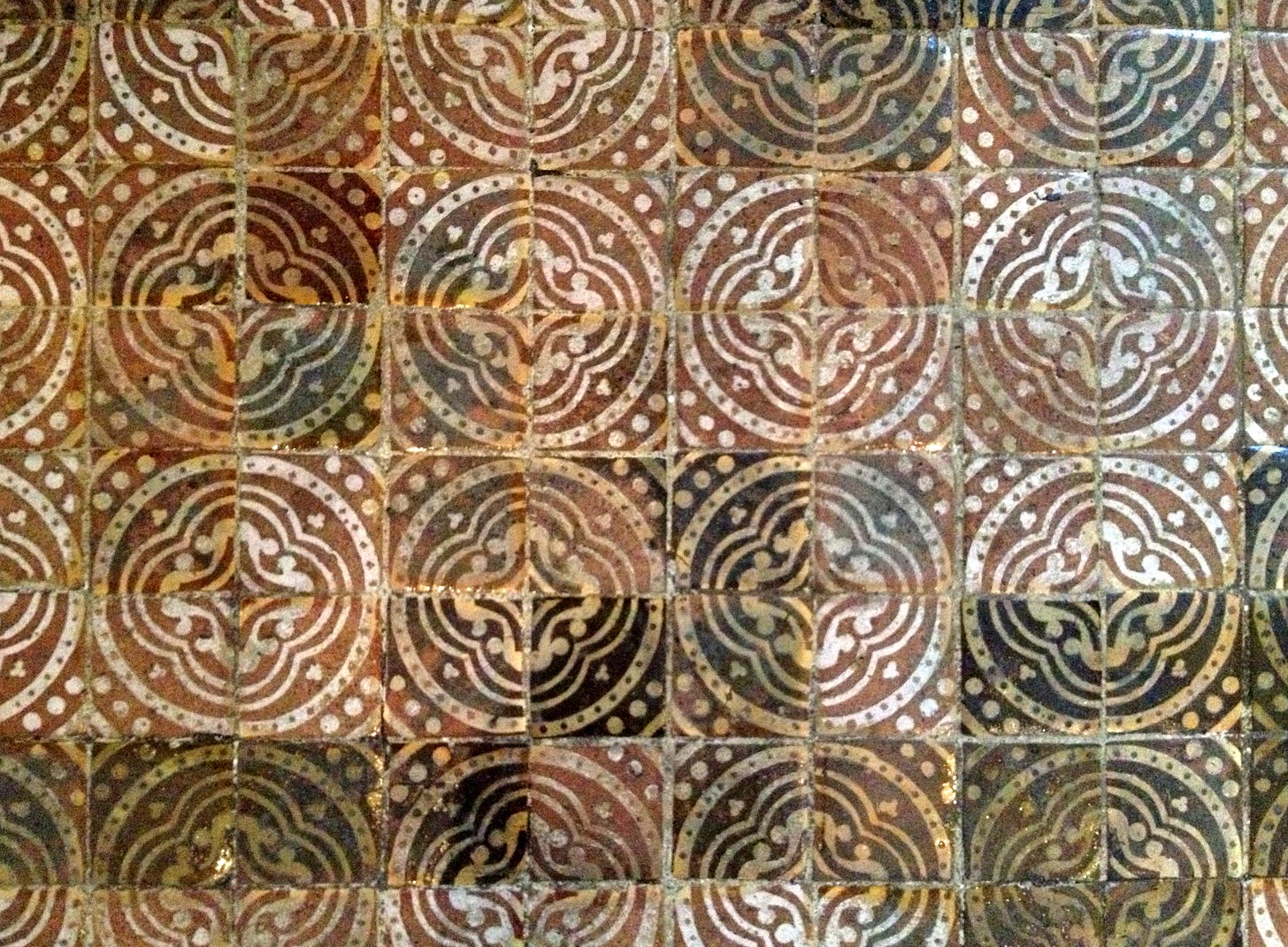
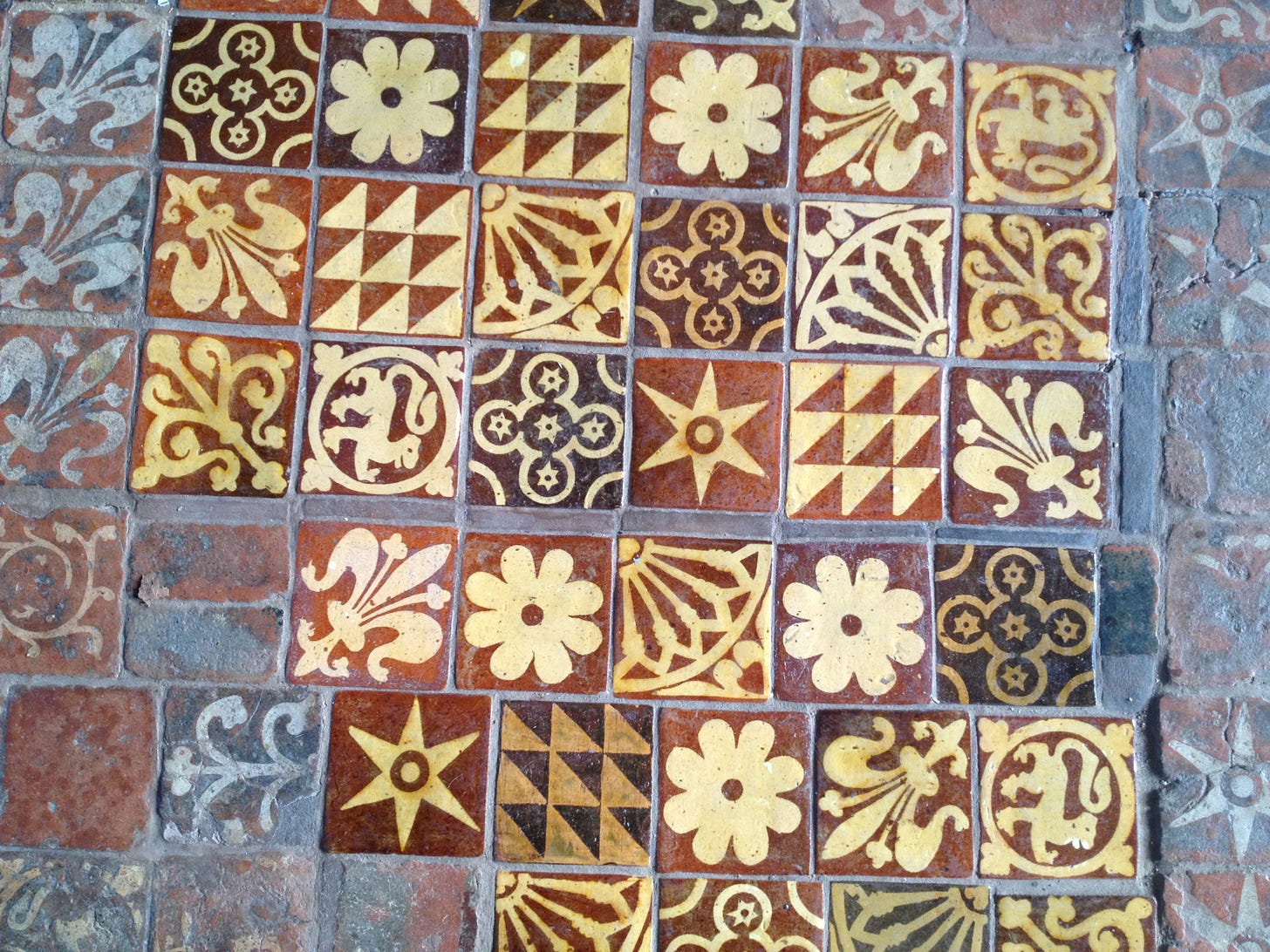
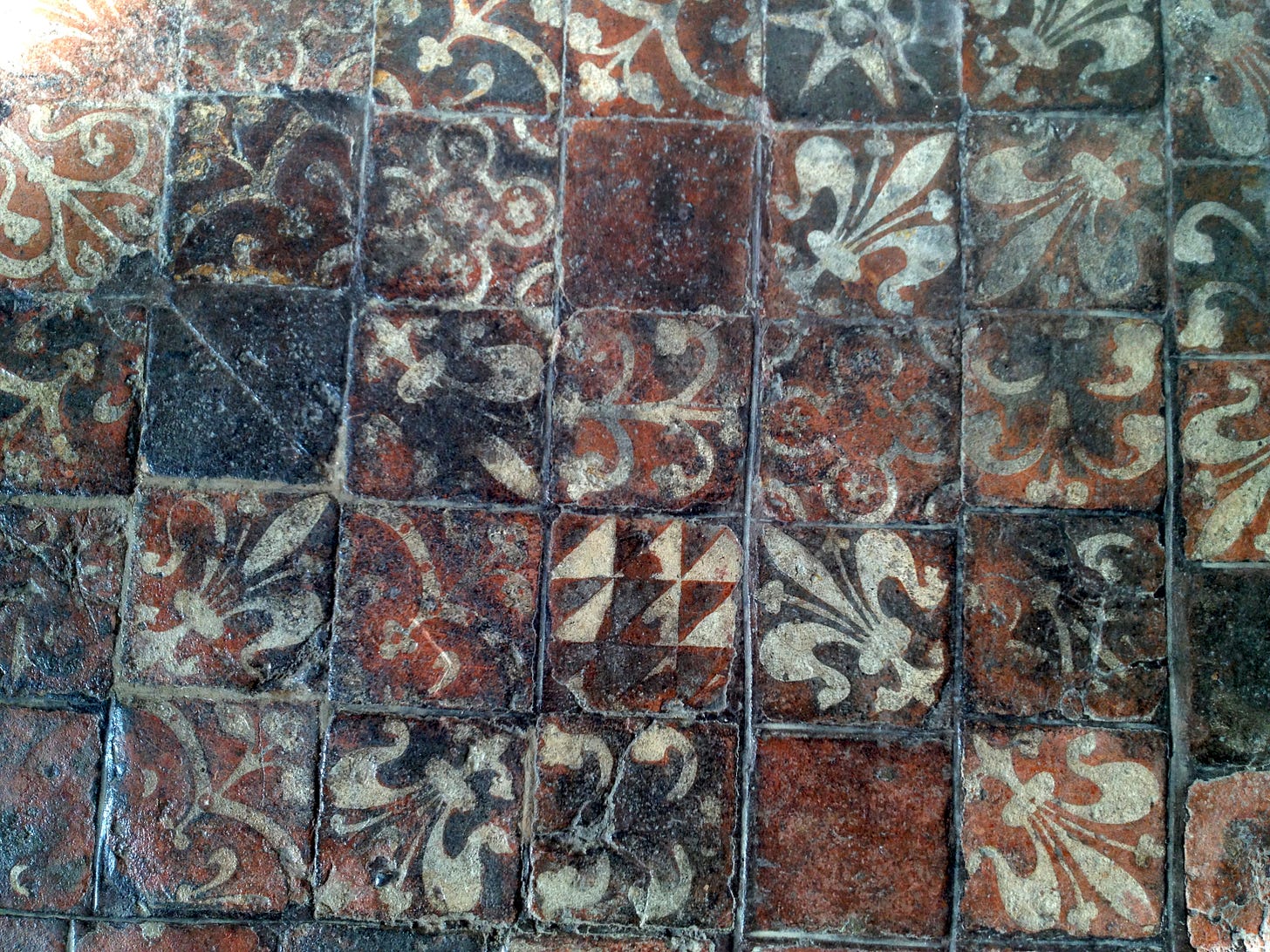
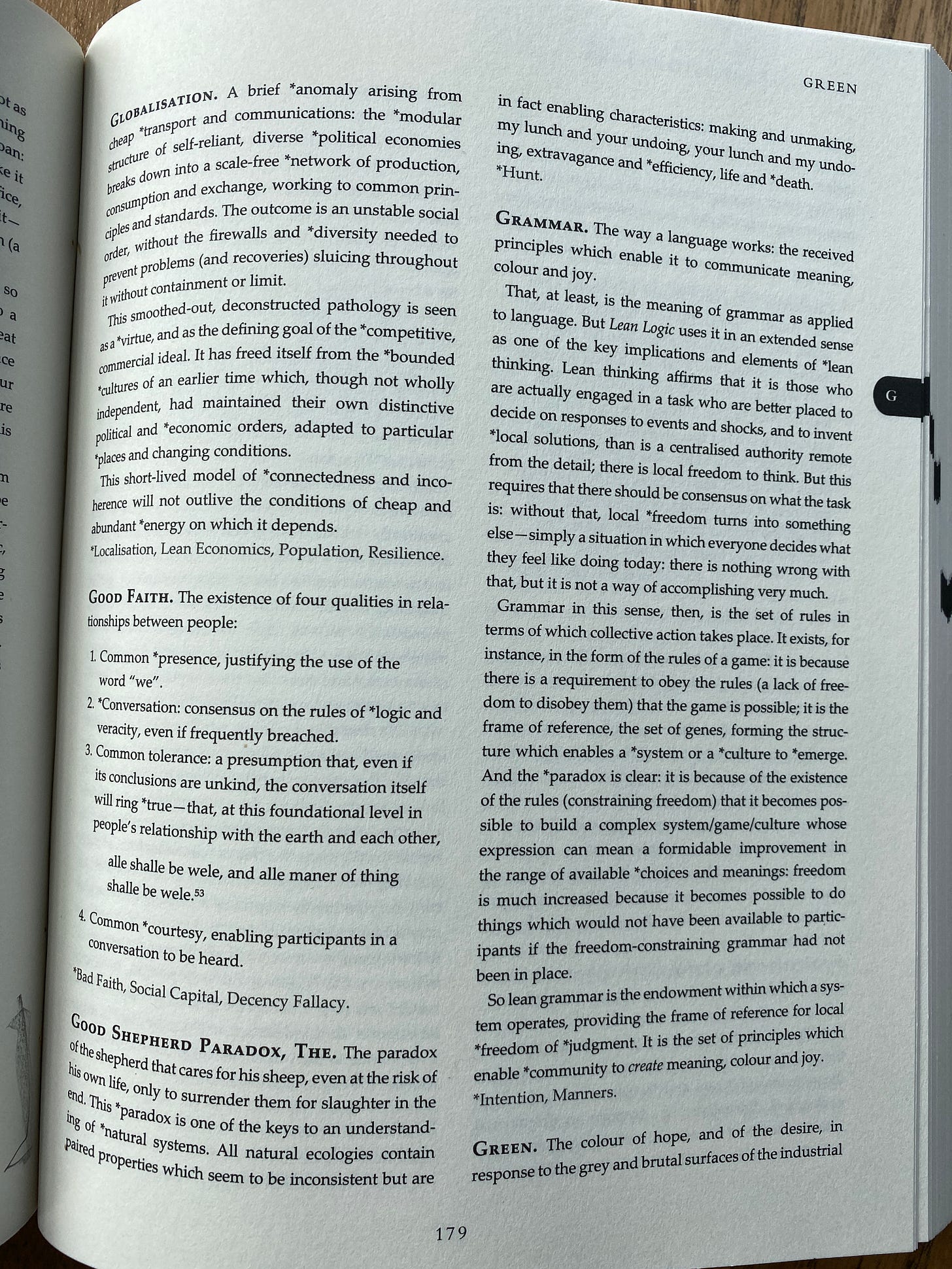
Hi Caroline, You might like a podcast that I work on called 'As The Season Turns'. It's a monthly podcast which reflects on the seasons as they change. I have a short segment where I create a 'sonic scrapbook' of a landscape in the UK: https://ffern.co/podcast/
As an aside: the more I think about the term 'convivialism' the more I like it. It lays out for me the things good to focus on, and therefore on the convivial skills and habits I lack. Well expressed in the linked essay, 'The Art of Survival, Taoism and the Warring States'.